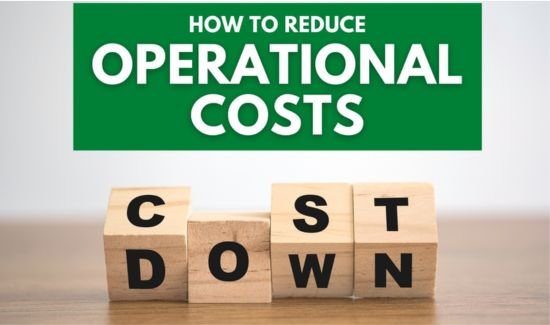B2B e-commerce is swiftly transforming how businesses function in today’s fast-paced digital world. Understanding the subtleties of B2B e-commerce—its advantages and disadvantages—is essential for small business owners, e-commerce managers, and marketers.
This blog will explore B2B E-commerce Advantages and Disadvantages, providing valuable insights to help you make informed decisions.
Understanding B2B E-Commerce
What is B2B E-Commerce?
Online business-to-business transactions are known as B2B e-commerce or business-to-business electronic commerce. Business-to-business (B2B) e-commerce is distinct from business-to-consumer (B2C) e-commerce in that the latter is focused on selling goods and services to other companies. Larger orders and more complicated transactions, including bulk purchases or personalized price arrangements, are frequently included in this e-commerce.
Differences Between B2B and B2C E-Commerce
While some parallels exist between B2B and B2C e-commerce, the main differences are their target audiences and transaction complexity. B2C e-commerce usually consists of simple online purchases, such as purchasing shoes. On the other hand, B2B transactions sometimes need extensive negotiations, processing of bulk orders, and long-term contracts. Furthermore, B2B clients prioritize cost-effectiveness and efficiency, whereas B2C clients value convenience and overall experience more.
The Growing Importance of B2B E-Commerce
In the corporate world, business-to-business e-commerce is growing in significance. Recent figures predict that global B2B e-commerce sales will reach $20.9 trillion by 2027. The demand for firms to increase market share, save expenses, and streamline processes fuels this rise. As digital technologies grow in popularity, B2B e-commerce has the potential to transform international trade and corporate processes completely.
This blog will help you identify B2B E-commerce Advantages and Disadvantages.
Advantages of B2B E-Commerce

1. Increased Efficiency in Transaction Processing
One of the main advantages of business-to-business e-commerce is the improved processing efficiency of transactions. Businesses may save time and money by automating repetitive operations like purchasing and invoicing.
Transactions are processed accurately, which also lessens the possibility of human mistakes. Thanks to this efficiency, businesses can increase overall production and concentrate on key tasks.

2. Wider Market Reach and Accessibility
Thanks to B2B e-commerce, businesses now have more ways to connect with customers worldwide. With an online presence, companies may present their goods and services to clients worldwide.
Because of this round-the-clock availability, businesses may now access previously unreachable markets. By utilizing digital channels, companies may increase their development and their consumer base.

3. Cost Savings through Reduced Operational Expenses
B2B e-commerce also offers the benefit of possible cost reductions. Online transactions frequently result in cheaper operating expenditures than traditional sales channels.
Companies may reduce overhead expenses like rent, utilities, and personnel associated with physical shops. Automating numerous processes, which lessens the need for human involvement, also reduces costs.

4. Enhanced Customer Experience and Satisfaction
B2B e-commerce systems provide tailored shopping experiences that address the particular requirements of corporate clients. Businesses may provide tailored recommendations and custom pricing using data analysis and customer insights.
This level of customization fosters long-term connections and increases client satisfaction. Moreover, B2B e-commerce facilitates quicker and more dependable customer support, guaranteeing timely answers to questions and effective order fulfillment.
Disadvantages of B2B E-Commerce

1. Security and Privacy Concerns in Online Transactions
B2B e-commerce has numerous benefits, but there are security and privacy issues. Cyberattacks and data breaches might jeopardize confidential company information when conducting business online.
Businesses must adhere to data protection standards and invest in strong cybersecurity solutions to reduce these risks. Retaining credibility and trust requires protecting client data at all costs.

2. Dependency on Technology and Potential Downtime
Because B2B e-commerce depends significantly on technological infrastructure, companies are susceptible to server failures and other technical issues. Any interruption to the internet platform may result in less sales and unhappy clients.
Consequently, organizations need dependable IT support and backup plans to reduce downtime and guarantee ongoing operations. The system must also be updated and maintained regularly to function properly.

3. Initial Setup Costs and Ongoing Maintenance
Setting up a B2B e-commerce platform costs a lot of money upfront. Businesses must set aside funds for staff training, software integration, and website development. Furthermore, the expense of continuing maintenance, such as server hosting and system updates, can build up over time.
These costs might be complicated for small enterprises. However, setup expenses are frequently surpassed by long-term advantages.

4. Challenges with Integration and Compatibility
Integrating an existing company system with a B2B e-commerce platform can be difficult and time-consuming. Software and platform compatibility problems may result in operational inefficiencies. To guarantee smooth data flow and prevent interruptions, businesses must properly plan and carry out the integration process. Working with seasoned IT specialists can assist in overcoming these obstacles and achieving integration success.
Conclusion
To sum up, there are many benefits associated with business-to-business e-commerce, including improved customer satisfaction, expanded market penetration, and heightened efficiency. However, it has several drawbacks, such as security issues, reliance on technology, setup expenses, and integration difficulties.
By utilizing the potential of B2B e-commerce, companies may achieve long-term success and obtain a competitive edge. I hope this blog helped you explore B2B e-commerce advantages and Disadvantages.
If you want to know about the hardware and software requirements for E-commerce success, read this article: Essential Guide to Hardware and Software Requirements for E-commerce Success. If you want to start Daraz affiliate marketing, read this article: Boost Your Income with Daraz Affiliate Marketing.
Frequently Asked Questions (FAQs)
How does B2B e-commerce improve efficiency?
Business-to-business e-commerce increases productivity by automating tedious processes like ordering and invoicing. By automating tasks, companies may reduce human error, save time, and concentrate on key initiatives to increase overall productivity.
What are the security concerns associated with B2B e-commerce?
Data breaches and cyberattacks are security problems in business-to-business e-commerce because they potentially jeopardize confidential corporate data. To reduce these risks, businesses must invest significantly in cybersecurity safeguards and adhere to data protection laws.
What are the potential challenges of implementing B2B e-commerce?
The e-commerce platform’s initial setup expenses, continuing maintenance, reliance on technology that may cause outages, and difficulties integrating it with current corporate processes are among the problems.
Is B2B e-commerce suitable for small businesses?
Although B2B e-commerce may include significant setup and maintenance costs in the long run, small firms may find that the advantages in terms of cost reductions, expanded market reach, and enhanced productivity typically outweigh these costs.


2 thoughts on “B2B E-commerce Advantages and Disadvantages”